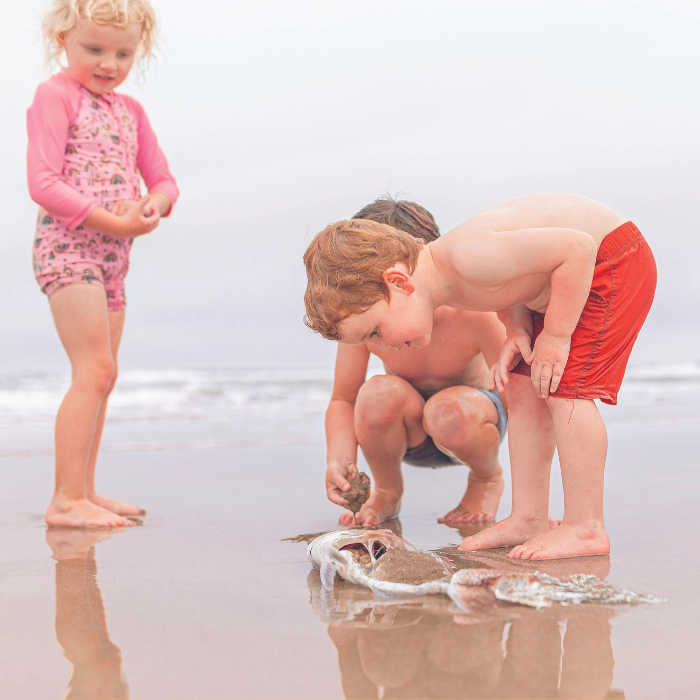
Do kids really lose learning over the holidays? Tiffany Brown investigates.
The notion that kids lose academic proficiency over the course of the long summer break has been so pervasive, there are now at least four ways to describe it: “Summer learning loss (SLL)”, “summer slide”, “summer reading loss”, or “summer slump”.
Following decades of speculation and observation from the education sector, a systematic review of available research published in 1996 showed American students lost the equivalent of about one month’s worth of classroom learning across the summer period, with more pronounced regression in maths than reading. This seemed to confirm what frustrated teachers the world over had been saying about the school year’s educational gains being lost in the haze of summer. The same research also indicated a widening gap between children from higher or lower-income families, the latter losing more learning than the former.
TAKING ANOTHER LOOK
But a 2018 study led by Paul von Hippel showed that inequalities in basic skills originate at the earliest stages of childhood, before any formal education even begins.
It also showed that gaps neither significantly nor consistently grow or shrink. This was based on a range of metrics, including ethnicity, gender, and socioeconomic factors. The 1996 research – which entrenched SLL as an educational phenomenon – was criticised for a number of inherent flaws.
Paul von Hippel went on to question everything once believed true of SLL, and wrote, “So what do we know about summer learning loss? Less than we think. The problem could be serious, or it could be trivial. Children might lose a third of a year’s learning over summer vacation, or they might tread water. Achievement gaps might grow faster during summer vacations, or they might not.”
COMPLICATING MATTERS
Even more recently, a US study analysing assessment data from 3.4 million students presented an increasingly complex picture of the brain drain phenomenon. While the study found evidence for significant knowledge loss across the summer months in some students, it found those experiencing the greatest summer loss were those who had made the largest gains during the academic year. The authors felt the results called into question the usual explanations for SLL, such as access to summer learning programmes, and the length of the school year.
The picture looks a little inconclusive at this point, right? Both empirically and evidentially, educators appear united in at least one viewpoint; SLL is real, but it doesn’t impact all children in the same way. So let’s turn our attention closer to home.
THE LOCAL EVIDENCE
Little research had taken place here in New Zealand until 2015, when PhD student Louise Turner, along with Laura Tse, produced a paper: “Solving summer slide: Strategies and suggestions”.
Turner had been running a pilot study over the previous five years investigating whether SLL could be reduced by providing students with 15 self-selected books matched to their reading and interest levels over the summer holidays. A home liaison also visited each participant three times to offer support and discuss the programme with the student and their family.
Turner and Tse’s research provided a springboard for the New Zealand Summer Reading Programme (summerreadingprog.nz), which is ongoing, and now has a number of participating schools. Despite slower gains as a result of COVID-19 school closures, the research has consistently shown a positive impact on students. Reading aptitude has improved each summer – especially for those with lower ability. In 2022-2023, Years 3, 4, and 5 students gained between 1.6 and 4.3 months’ worth of learning as a result of the programme.
REDUCING THE BRAIN DRAIN
So, your child may be affected by SLL, or maybe not. If they gained immensely in knowledge during the school year, it’s possible they’re more at risk of a backslide or, at least, of losing some oomph during the holidays. With that in mind, how can parents and caregivers stem any potential brain drain?
EXPLORE DIFFERENT WAYS TO LEARN
summerreadingprog.nz suggests a wide range of strategies that could hit the mark, including ways to encourage reading by making it accessible and entertaining, and modelling reading behaviour by letting kids see the older children and adults around them reading a variety of material. There are also ideas to encourage kids with maths, and strategies to make the most out of summer activities or trips. With a small shift in perspective, learning opportunities pop up everywhere; children helping with shopping, preparing meals, and getting from A to B are all rich sources of reading and maths, as well as being ways to strengthen parent-child relationships, a key component to successful learning.
NEW PLACES, NEW EXPERIENCES
One of the best ways to encourage kids to learn during a break from school is to visit different places and provide different experiences. If you’re able to take a holiday, everything from the plane, boat, train, ferry, or car journey through to the history, geography, people, or culture at your destination can offer engaging ways to learn. Closer to home, you may simply use an alternative mode of transport to visit a different location, with similar fresh opportunities for discovering new things.
HOLIDAY PROGRAMMES
Libraries, museums, and galleries all routinely offer holiday courses, activities, or programmes to keep students learning during the school break, as do many sports and cultural clubs or groups. “Catch-up” tutoring can also be used as a tool to reduce summer brain drain; some students who struggle in a classroom environment absolutely thrive in a one-on-one learning situation, especially if it’s focussed on fun and enjoyment alongside achievement. Tutoring can cement learning gained during the school term through repetition and familiarity. Look for opportunities in your area, or investigate online options.
ONLINE LEARNING OPTIONS
Let’s face it, kids are likely going to be increasingly exposed to screens during the summer holidays as it is. So you might as well seek out educational online programmes to keep their brains active and engaged. As opposed to cartoons, shows, or movies, online courses or tuition often include a rewards-based scale of achievement which creates more engagement for a child than passive observation. Gaming may have its own inherent perils, but likewise, can offer more positive learning outcomes than the relatively mindless pursuit of watching televised or online content. Just make sure they head outside for at least part of every day… It’s summertime, after all!









